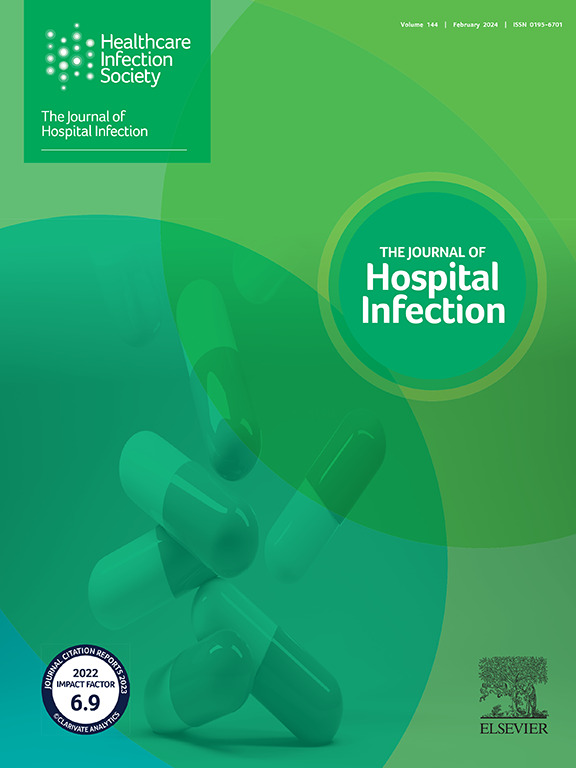在重症监护病房实施的抗菌药物管理干预措施的系统回顾。
IF 3.9
3区 医学
Q1 INFECTIOUS DISEASES
引用次数: 0
摘要
抗菌药物管理(AS)对于确保适当使用抗菌药物并随后减少微生物耐药性的出现至关重要。重症监护病房由于经常接触感染,是监测抗菌素使用情况的关键场所。这篇综述提供了在重症监护环境中使用的抗菌药物管理干预的最新现状。在Cochrane、Web of Science和PubMed中进行了全面的搜索,使用关键词分组为抗菌、管理和重症监护病房。搜索仅限于2015年4月至2024年11月期间发表的原创文章。从数据库中检索到的1234条记录中,有55项研究纳入了本系统综述。大多数研究在美国进行(n = 9),其次是中国(n = 8),印度(n = 5)和意大利(n = 4)。我们确定了7个关键的抗菌素管理(AS)策略:多干预ASP(22项研究,40%)、前瞻性反馈和审核(11项研究,20%)、指导抗菌素使用的降钙素原(PCT)方案(12项研究,21.8%)、抗菌素减少方案(4项研究,7.3%)、抗菌素限制或预批准(4项研究,7.3%)、诊断管理(1项研究,1.8%)和抗菌素处方指南(1项研究,1.8%)。大多数研究报告了靶向或总体抗菌药物使用的减少(34/42)。具体而言,所有实施多发明asp的研究都报告了抗菌药物使用的成功减少。一些抗菌药物管理干预措施显著提高了抗菌药物处方的适宜性。此外,减少抗菌素用量并未损害患者的健康结果。尽管如此,建议未来进行更大规模、更长时间的研究,以准确评估AS项目对患者健康结果的影响。本文章由计算机程序翻译,如有差异,请以英文原文为准。
A systematic review of antimicrobial stewardship interventions implemented in intensive care units
Antimicrobial stewardship (AS) is essential to ensure appropriate antimicrobial usage and subsequently reduce the emergence of microbial resistance. The intensive care unit is a crucial place for monitoring antimicrobial usage due the frequent exposure to infections. This review provides an update on the current status of AS intervention utilized in intensive care settings. A comprehensive search was performed in Cochrane, Web of Science, and PubMed using keywords grouped into Antimicrobial, Stewardship, and Intensive care unit. The search was restricted to original articles published from April 2015 to November 2024. Of 1234 records retrieved from the databases, 55 studies were included in this systematic review. Most of the studies were conducted in the USA (N = 9), followed by China (N = 8), India (N = 5), and Italy (N = 4). We identified seven key AS strategies: multi-intervention AS programmes (22 studies, 40%), prospective feedback and audit (11 studies, 20%), procalcitonin (PCT) protocols for guiding antimicrobial use (12 studies, 21.8%), protocols for antimicrobial de-escalation (four studies, 7.3%), antimicrobial restrictions or preapprovals (four studies, 7.3%), diagnostic stewardship (one study, 1.8%), and guidelines for antimicrobial prescription (one study, 1.8%). A reduction in targeted or overall antimicrobial usage was reported in most studies (34/42). Specifically, all studies implementing multi-invention AS programmes reported a successful reduction in antimicrobial utilization. Some AS interventions significantly enhanced the appropriateness of antimicrobial prescriptions. In addition, patient health outcomes were not compromised by antimicrobial reduction. Nonetheless, future studies at a larger scale over a longer time are recommended to accurately assess the impact of AS programme on patient health outcomes.
求助全文
通过发布文献求助,成功后即可免费获取论文全文。
去求助
来源期刊

Journal of Hospital Infection
医学-传染病学
CiteScore
12.70
自引率
5.80%
发文量
271
审稿时长
19 days
期刊介绍:
The Journal of Hospital Infection is the editorially independent scientific publication of the Healthcare Infection Society. The aim of the Journal is to publish high quality research and information relating to infection prevention and control that is relevant to an international audience.
The Journal welcomes submissions that relate to all aspects of infection prevention and control in healthcare settings. This includes submissions that:
provide new insight into the epidemiology, surveillance, or prevention and control of healthcare-associated infections and antimicrobial resistance in healthcare settings;
provide new insight into cleaning, disinfection and decontamination;
provide new insight into the design of healthcare premises;
describe novel aspects of outbreaks of infection;
throw light on techniques for effective antimicrobial stewardship;
describe novel techniques (laboratory-based or point of care) for the detection of infection or antimicrobial resistance in the healthcare setting, particularly if these can be used to facilitate infection prevention and control;
improve understanding of the motivations of safe healthcare behaviour, or describe techniques for achieving behavioural and cultural change;
improve understanding of the use of IT systems in infection surveillance and prevention and control.
 求助内容:
求助内容: 应助结果提醒方式:
应助结果提醒方式:


